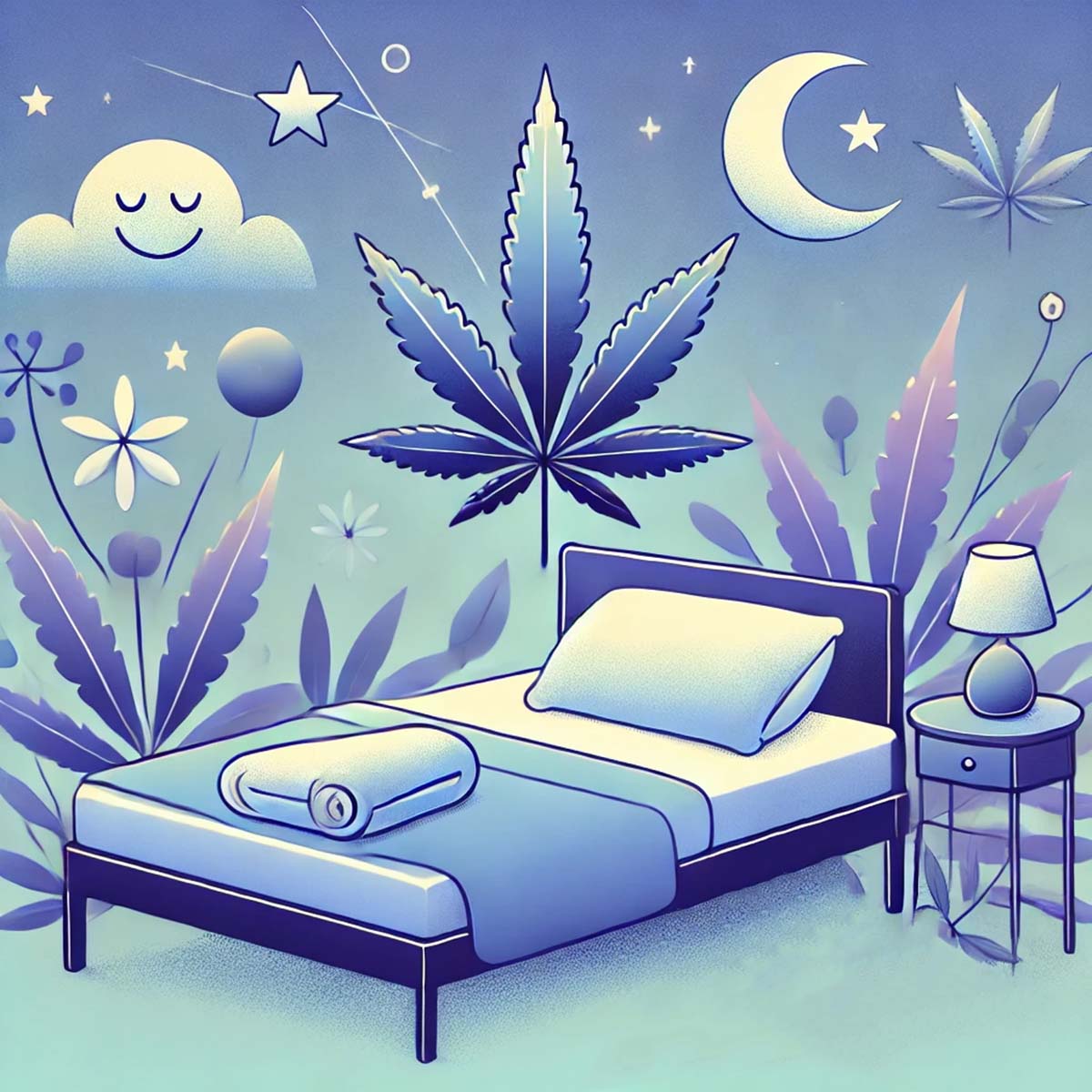A good night’s sleep is crucial for physical and mental well-being, but many individuals struggle with sleep disorders and insomnia. In recent years, cannabis has gained attention for its potential role in improving sleep. This overview explores the relationship between cannabis and sleep, examining both anecdotal claims and scientific evidence.
The Science of Sleep
Before diving into the effects of cannabis on sleep, it’s essential to understand the sleep cycle. Sleep consists of two main phases: rapid eye movement (REM) sleep and non-REM sleep. Both phases play vital roles in restorative sleep and overall health.
- REM Sleep: This is the stage of sleep associated with dreaming and cognitive restoration. It occurs periodically throughout the night and is critical for memory consolidation and emotional processing.
- Non-REM Sleep: Non-REM sleep consists of several stages, with the deepest being slow-wave sleep (SWS). SWS is crucial for physical restoration, and it’s when the body repairs and regenerates tissues.
Cannabis Compounds and Sleep
Cannabis contains multiple compounds, including tetrahydrocannabinol (THC) and cannabidiol (CBD), that interact with the endocannabinoid system (ECS), which plays a role in regulating sleep.
- THC: THC is the psychoactive component of cannabis and is known for its sedative effects. It binds to CB1 receptors in the brain, potentially helping to induce sleep and increase SWS.
- CBD: CBD is non-psychoactive and is believed to have anxiolytic and calming effects. Some users report that it helps reduce anxiety, which can contribute to better sleep.
The Anecdotal Claims
Many individuals have reported that cannabis helps them fall asleep faster and stay asleep longer. Some say it leads to more vivid dreams, while others emphasize its ability to ease insomnia and sleep disturbances.
The Scientific Perspective
Scientific research on the relationship between cannabis and sleep is still evolving. Some studies and findings offer insights into the potential effects of cannabis on sleep:
- CBD may hold promise for REM sleep behavior disorder and excessive daytime sleepiness | GreenMedInfo
- Recent cannabis use and nightly sleep duration in adults: a population analysis of the NHANES from 2005 to 2018 | BMJ Journals
While some studies suggest benefits, it’s essential to consider individual responses and consult with a healthcare professional before using cannabis for sleep-related issues.
Considerations and Risks
While cannabis may offer sleep benefits to some individuals, there are important considerations:
- Individual Variation: Responses to cannabis can vary. What helps one person sleep better may not have the same effect on another.
- Short-Term vs. Long-Term Effects: The short-term sleep improvements experienced with cannabis may not necessarily translate to long-term benefits. Long-term cannabis use can lead to tolerance and dependence.
- Impairment and Grogginess: Some individuals experience grogginess or cognitive impairment the day after using cannabis, which may affect productivity.
- Legality and Regulations: The legality of cannabis varies by region, and it is essential to adhere to local laws and regulations.
- Consult a Healthcare Professional: If you are considering using cannabis to improve your sleep, consult with a healthcare professional who can provide guidance tailored to your specific needs and circumstances. They can help you weigh the potential benefits and risks and make informed decisions about sleep management.
Summing Up
The relationship between cannabis and sleep is multifaceted. While some individuals report improved sleep quality and duration with cannabis use, it’s essential to approach this potential solution with caution and responsibility. Scientific research on the topic is ongoing, and individual responses to cannabis can vary widely. It’s crucial to consider both the potential benefits and risks when exploring cannabis as a tool to enhance sleep.



